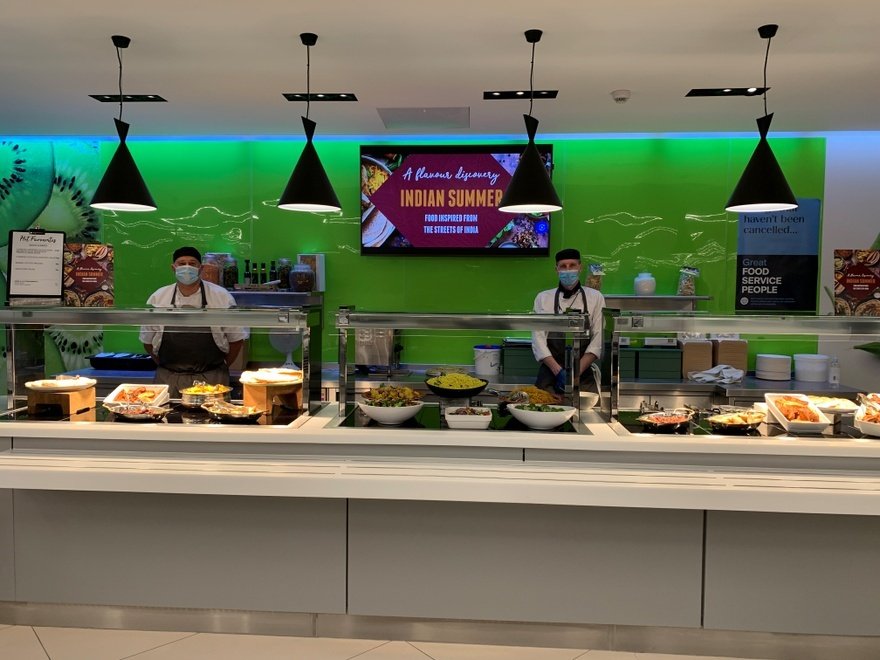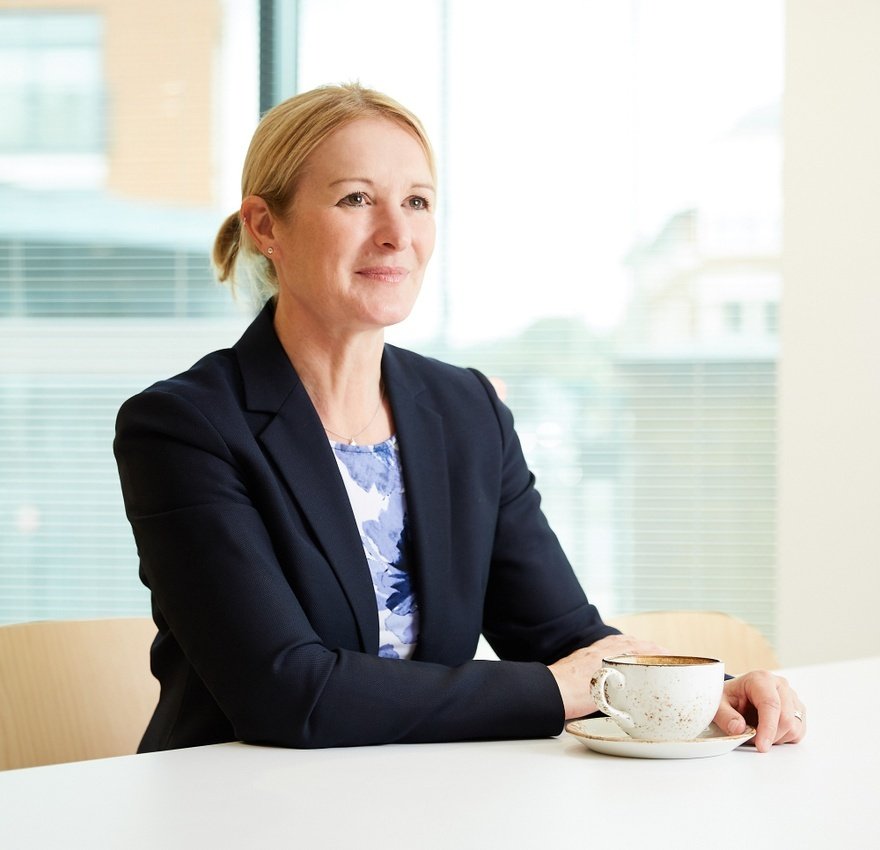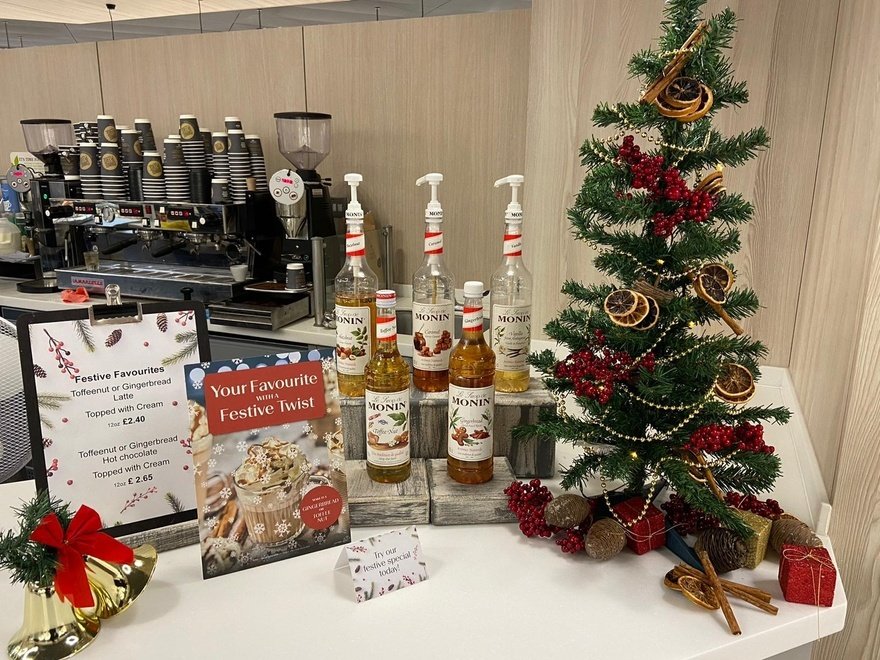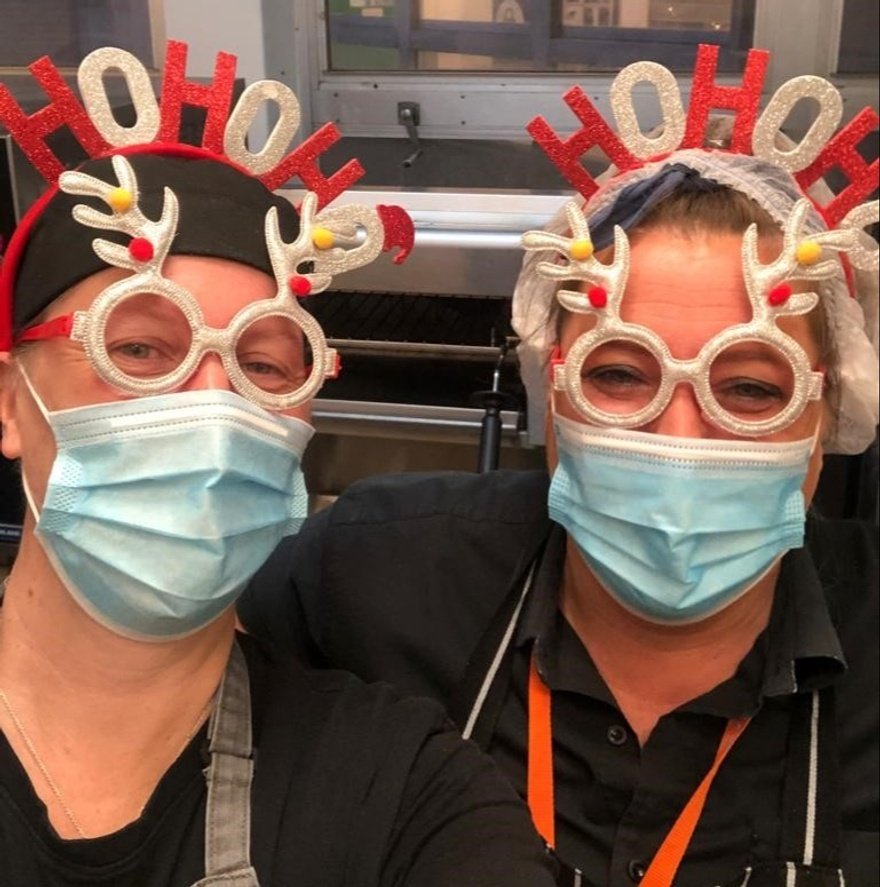Morag Freathy of Compass Group on the importance of workplace catering
The managing director of business and industry UK at Compass Group talks to Katherine Price about focusing on health and wellbeing, catering for those working from home, and why the importance of the workplace restaurant can't be overestimated.
What impact has the Covid-19 pandemic had on Eurest as well as the wider Compass Group?
The hospitality industry was hit very hard, but I share Dominic's [Blakemore, group chief executive] positivity about the future and his confidence and optimism in the business. While we can't predict what's going to happen over the next few weeks and months, both Compass and Eurest have been focusing very heavily on what we can control and that's created a solid foundation for our growth. Within Eurest we're moving in a positive direction and every week we're seeing a positive move, so from that standpoint it's reassuring.
During the first lockdown, over 60% of our business within Eurest remained open, and that's because we were serving industries that had been deemed essential, so supermarkets, utility companies, that sort of thing. We were very quickly out of the blocks on providing spaces where we could feed and fuel people safely, and I think we did that really well. We got some great feedback from the clients and our consumers.
Salad bars and buffets were replaced with pre-portioned, pre-packed food boxes and grab-and-go, and we moved towards barcoding, so it was quicker, more hygienic and gave comfort to consumers.
We did a lot of work on technology early on, so we had digital menus, reduced touchpoints and touchless condiment dispensers. We removed cash from the business and introduced a click-and-collect app called Time to Eat.
We have quite a reasonable vending arm within Eurest, but a lot of our clients wanted to retro-fit vending machines that were cashless and contactless. They also wanted what we call ‘micro-markets' – unmanned retail outlets and vending – which we were able to do because we've already got those within the business.
What were your plans for this year and what have you achieved?
Our plans were to emphasise our purpose, which is health and wellbeing, fuelling workforces and doing it in the right way. That didn't change. We made a decision as a business that we would manage the crisis while continuing to develop and communicate our purpose, because we were 60% open. Now, about 85% of our business is back up and running. I guess it made us focus harder on that purpose because it became very evident early on that health and wellness were on the nation's agenda.
It became very evident early on that health and wellness were on the nation's agenda
For most businesses that have been affected by the pandemic, irrespective of their industry, it's encouraged them to be quite brave and be quicker and think differently about solutions and the offer of the future, and Eurest is no different.
Consumer needs have changed dramatically during the past eight months. As a result of Covid, the hospitality industry and other industries are probably going to come out of this having accelerated what may have happened over the next three to four years into eight months.
What is your focus when it comes to health and wellbeing?
First of all, supporting British produce was high on our agenda pre-Covid. It's high on my agenda because I'm a farmer's daughter, so I have a strong belief that we should be supporting British producers.
Just over 80% of Eurest produce is sourced from the UK and that's increasing. The other produce is stuff that we can't source. We've just recently moved our mozzarella cheese to a UK producer. And consumers are asking more and more ‘where is my food coming from?' We feel very confident in that area.
From a health and wellbeing point of view, our approach is seasonal. People want to see fresh produce and plant-forward [offerings]. The government has done some research that about 14% of the nation is flexitarian.
We developed our new menu for September to be based on 80% British produce. We reduced the calories per 100g of food by about 25%, but we also increased the amount of plant content. People are still getting protein with the option of reducing their meat consumption. And then we did things like switching out white rice and substituting it for high-fibre whole wheat, such as bulgur wheat or brown rice. All Eurest dishes have been analysed by our nutritionists.
Consumers love the health and wellbeing and love the choice. We don't adopt a ‘you will have this' mentality – it's all about options and choice for consumers.
As a result of your reliance on British produce, are you less concerned about business disruption post-Brexit?
It certainly helps. Compass Group and Foodbuy, our sourcing team, have been working really hard on making sure there's minimal disruption to the business. It is helpful that we do source a high percentage of our produce from the UK.
How have you been working with and supporting suppliers during this time?
We're working with all our suppliers, of which we've got many. Many of them are small, local suppliers and we've got many social enterprise businesses as well. Working to maintain and support them is important to us as a business.
And how are you adapting your service?
We've extended opening hours to allow customers to spread their breaks and sit down, because obviously there's a social distancing requirement within the restaurants. We're also adapting the offer to more grab-and-go.
We've also been extending the options for consumers, so we've been doing an offer called Prepped, which are dishes you can take and reheat at home if you don't want to cook dinner. Or if you're in the office on a Thursday and working from home on a Friday and you know your fridge is empty – which is normally the case with my fridge – you can grab something before you go.
We're also doing hampers, which have been going down really well. Some clients have been ordering them in when they've got people in an all-day virtual meeting. We can get those delivered to people's homes. People are also using them for team-building events.
We've also recently launched the Kitchen Club. It's a cookalong where we send you a hamper with all the ingredients. They've been going down really well, too. What's been great is innovating and trying to bring some fun and excitement, as well as health and wellbeing to food when employers don't have a restaurant to offer.
Tell us more about Wellness Wednesdays.
We've been running those for quite some time now. We talk about seasonality and about what you could cook at home in-season, but it's also about supporting physical health and mental wellbeing.
We inform people about our Nourished Life website, which is open to the general public, so people in workplaces can share it with family and friends as well. It's about encouraging people to avoid eating high fat and high sugar products for just one day a week.
Foodservice operators have previously been competing with the high street for customers – do you think this situation has put workplace catering at an advantage?
I think it probably does. The advantage that workplace cafés and restaurants have is that they're a place for people to collaborate, to have impromptu collisions. Sometimes the most creative thinking happens over a cup of coffee. As we come out of the pandemic, the world will be a different place with regard to food and drink, but the need and desire to collaborate and have those social interactions is not going to go away – in fact, it's probably going to increase.
The advantage that workplace cafés and restaurants have is that they're a place for people to collaborate, to have impromptu collisions
Will you be reopening more sites and bringing more of your people back to work as England exits lockdown?
I definitely expect that to happen. For Eurest, it is the office businesses where many people are still working from home. Some companies have brought people back already, whereas others will possibly be a little bit slower coming back, but we were expecting that and we work closely with our clients to walk through that journey.
In Compass's financial results for the last year it reported 92.6% client retention. Are clients looking for continuity?
People do want continuity, but I also think that we offer a really great solution. We've been working well with our clients during the pandemic. Relationships are really strong; Eurest and other parts of Compass group have worked closely with our clients and collaborated well to find different solutions.
Our clients have been brilliant and I know that clients in other divisions in other parts of Compass Group have too. Some of the things we've achieved have been fantastic, for example, trialling digital platforms.
Are you seeing opportunities for business in the New Year?
Come the New Year we may see the market start to move again and there's opportunity for new business. That's part of our growth plan.
Does the announcement of Compass Scotland as a distinct business change your role at all?
No, it doesn't change the business at all. It's part of our strategy, and it's absolutely the right thing to do. My business is part of Compass in Scotland and we've got quite a lot of business in Scotland. It's adding a spotlight, a real emphasis, on Scottish produce and supporting Scottish businesses. We're also launching Compass Cymru in Wales in early 2021.
What are your plans and strategy for next year?
There's quite a lot happening in early 2021. We've got Plantilicious, our plant-forward food offer, for which we're going to do a big relaunch and refresh in January. It's a good time to do it. It's becoming more and more popular and it's gone down really well, so we'll be driving more awareness around that in January. We're also going to be launching a plant-based academy where we will be training chefs in plant-based and plant-forward dishes.
Then we have the formal launch of Kitchen Club, and the official launch of Prepped as well early next year.
We've got something that we're doing around our own coffee brand that links in with a really nice charity, so that'll be launched early next year; and then we'll also be continuing to build solutions at home. For people who work in an office, we're expecting the work pattern to change and for people to work from home more often, probably at the beginning and end of the week. We can offer food and drink solutions for when they're doing that.
We've just recently launched our Copper Pan Kitchen. With that, chefs from different divisions come together to develop different dishes – we've been using those to supply sites that don't necessarily have the facilities to offer a full hot meal. Our chefs make it in the Copper Pan Kitchen and then we can distribute it to the location. Feedback has been great. They also do the hampers for us. I think we'll see that grow quite quickly next year.
We've done a huge amount in Eurest during the pandemic and I'm super proud. We've got Liz Forte as our health and wellbeing director – she's been brilliant and you'll see some really great stuff next year as a result of the work we've been doing in 2020.
How will the plant-based academy work?
Some of it will be for new chefs coming in, some will be chefs who are in the business and want to learn more about plant-forward food, and some of it will be development as well. A number of our dishes are developed by chefs who are out in the business, not just our executive chefs. We often get them in to do cook-offs.
How is the business celebrating Christmas?
On location, in our workplace restaurants and cafés, we've got Christmas lunch and mince pies and the guys are dressing up. We've also been doing Christmas hampers, which have been really popular, and a Christmas range of hot drinks, because coffee is a big part of our business. It's probably our biggest seller.
For our staff, it's making sure as well that during the festive period people are taking a really good quality break. We've been working really hard and at Christmas I think it's really important that people can focus on their families and friends, and near and dear ones.
Has the mental health of your employees been a focus?
We have a couple of working practices that we've adopted. We take an hour for lunch and we encourage people to go out for a walk. What some of the guys have been doing is going out for a walk at lunchtime and then ringing a couple of colleagues and just having a chat while they're walking, which is what I do. It's really important to take a proper break when you're doing eight or nine hours on video. As a senior leader of the business I try to set an example with that so people are confident that it's OK to do this. We've tried to replace the chat at the coffee machine with a chat on a walk.
What are your predictions of what the future of workplace restaurants will look like?
They are here to stay in the main. The long-term role of a workplace restaurant or café can't be overestimated, because it's part of encouraging people to come back to work after the pandemic.
We did a survey recently and more than half of employees said that they were positively influenced by having a workplace restaurant. I don't think that will change, but I do think there will be a demand for healthy, nutritious, fresh, British-sourced offerings within that.
CV
2019–present Managing director, business and industry UK, Compass Group UK & Ireland
2017-present Managing director, Eurest UK
2016-2017 Managing director, Chimichanga and MEXIco, Prezzo
2013-2016 Managing director, growth markets, Compass Group UK
2010-2013 Strategic retention director, Compass Group UK and Ireland
2007-2011 Deputy divisional director, Aramark
2002-2007 Operations director, north and Scotland, Pizza Hut UK
1995-2002 Regional sales manager, Beefeater Restaurants
Continue reading
You need to be a premium member to view this. Subscribe from just 99p per week.
Already subscribed? Log In










